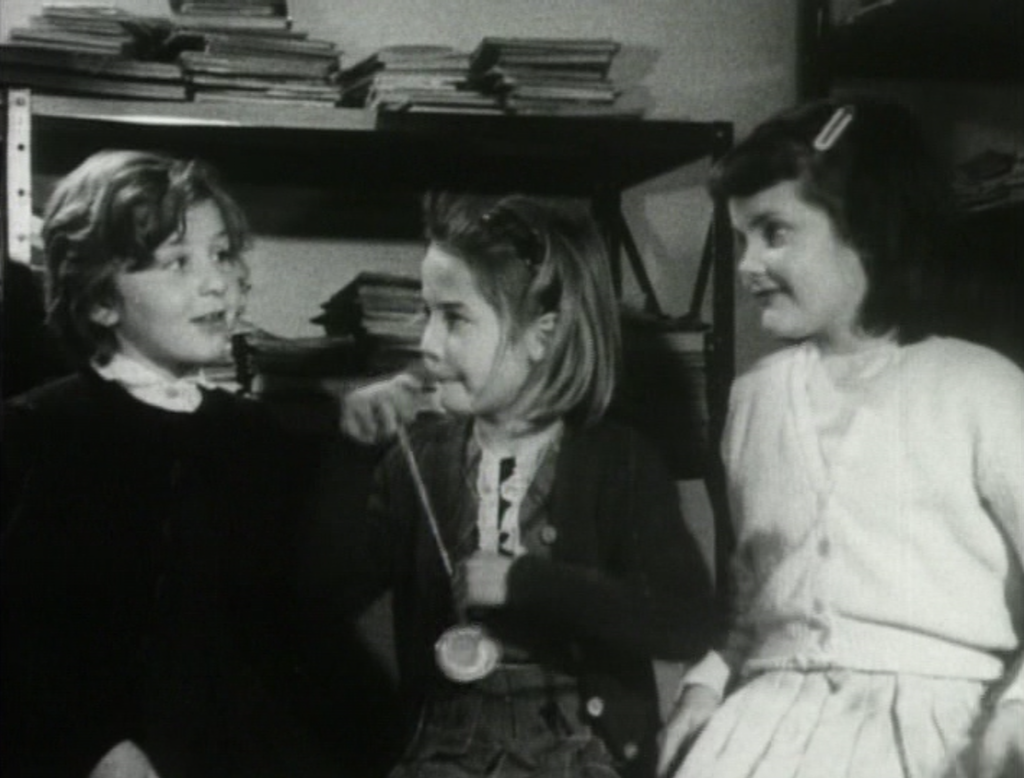
Film Matters: Please tell us about your article that is being published in Film Matters.
Roman Accardi: My article, “British Documentary Cinema, Growing Up,” combines a close analysis of Michael Apted’s Up documentary series with a history of British documentary cinema. The Up series began in 1963, when a team of researchers interviewed fourteen British schoolchildren, then seven years old. That team has returned every seven years thereafter to interview those same children. The children are now sixty-three. I contend that the early Up films find their roots in several movements in British social realism, and explore how the goal of the series shifts over the years from predominantly political to more artistic and humanist.
FM: What research and/or methodologies do you incorporate in your article?
RA: The article involves both analysis of the Up series and exploration of its historical context; as such, the research was divided into examination of secondary sources that describe the progression of British documentary cinema throughout the twentieth century and close reading of the Up films themselves.
FM: Describe the original context for/when writing this article while an undergraduate student.
RA: The article was initially written for a class on the history of world cinema; the assignment involved analyzing a film (or series of films) and its context within a specific region’s cinematic canon, using the film as a lens through which to analyze the idea of “national” cinema and how that idea applies to the region in which the film was produced. I chose to look at the Up series, as I argue that it serves as a microcosm for the entire British documentary tradition.
My second choice was S.S. Rajamouli’s Baahubali: The Beginning.
FM: How has your department and/or institution supported your work in film and media?
RA: The Washington University Film and Media department is committed to giving its students a deep and well-rounded education in cinematic history and training in film analysis. The film faculty at WashU have consistently encouraged me to think more deeply about film and to explore avenues of creative and analytical expression.
FM: How has your faculty mentor fostered your advancement as a film scholar?
RA: Professor Lewis has been invaluable in both the writing of this paper and my overall development as a film analyst at Washington University. In the classroom, she works constantly to facilitate fruitful and meaningful discussion of film art and to foster critical thinking and insightful analysis among her students. I greatly appreciate her commitment to improve my analytical and compositional skills, a commitment which included recommending that I submit my paper to this publication.
FM: How has the Film Matters editorial and publication process impacted the development/evolution of your article?
RA: The publication process has allowed me the opportunity to take a closer look at my article and adapt it to be read by a wider audience. As such, I have been able to shift the focus of the essay from the narrower constraints of the prompt to a more generalized goal that allows for further exploration of the significance of the series.
FM: What audience do you hope to reach with your Film Matters article and/or what impact do you hope it has on the field of film studies?
RA: As the Up series enjoys what might charitably be described as a rather compact viewership, I think the greatest impact this article could have would be to bring this wonderful series slightly further into the public eye. The barrier to entry is rather immense—it’s well over twelve hours of film in total, and the first few entries can be a bit dull until you get into the flow—but I can think of no other film more noble in its intent or more worthy of your time.
FM: What are your future plans?
RA: At point of writing, that is a rather complicated question. I am currently pursuing a double major in Film and Media Studies and Computer Science; my career may involve either or both of these skillsets. I will likely pursue a career in Software Engineering, although I would also dearly love to continue with full-time film criticism or screenwriting.
Author Biography
Roman Accardi is a fourth-year student currently pursuing a double major in Film and Media Studies and Computer Science at Washington University in St. Louis. Watching the Up series with his mother was one of his most treasured film experiences, and he hopes that readers might be inspired to undertake that same cinematic journey.







































